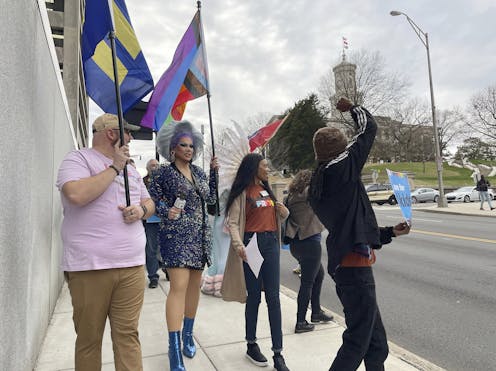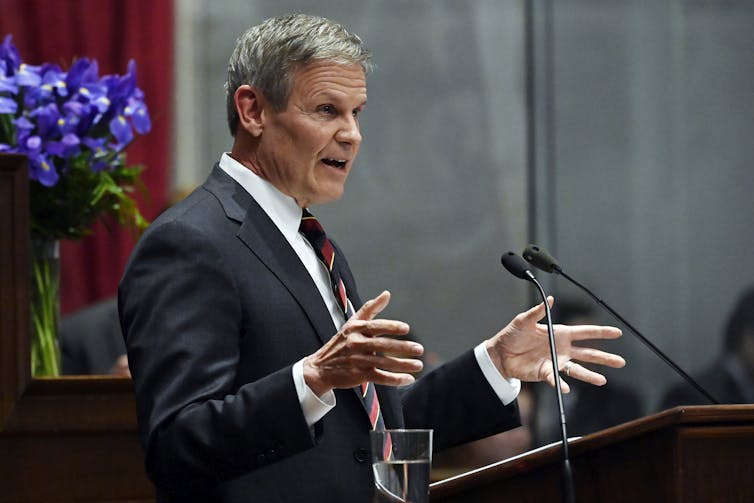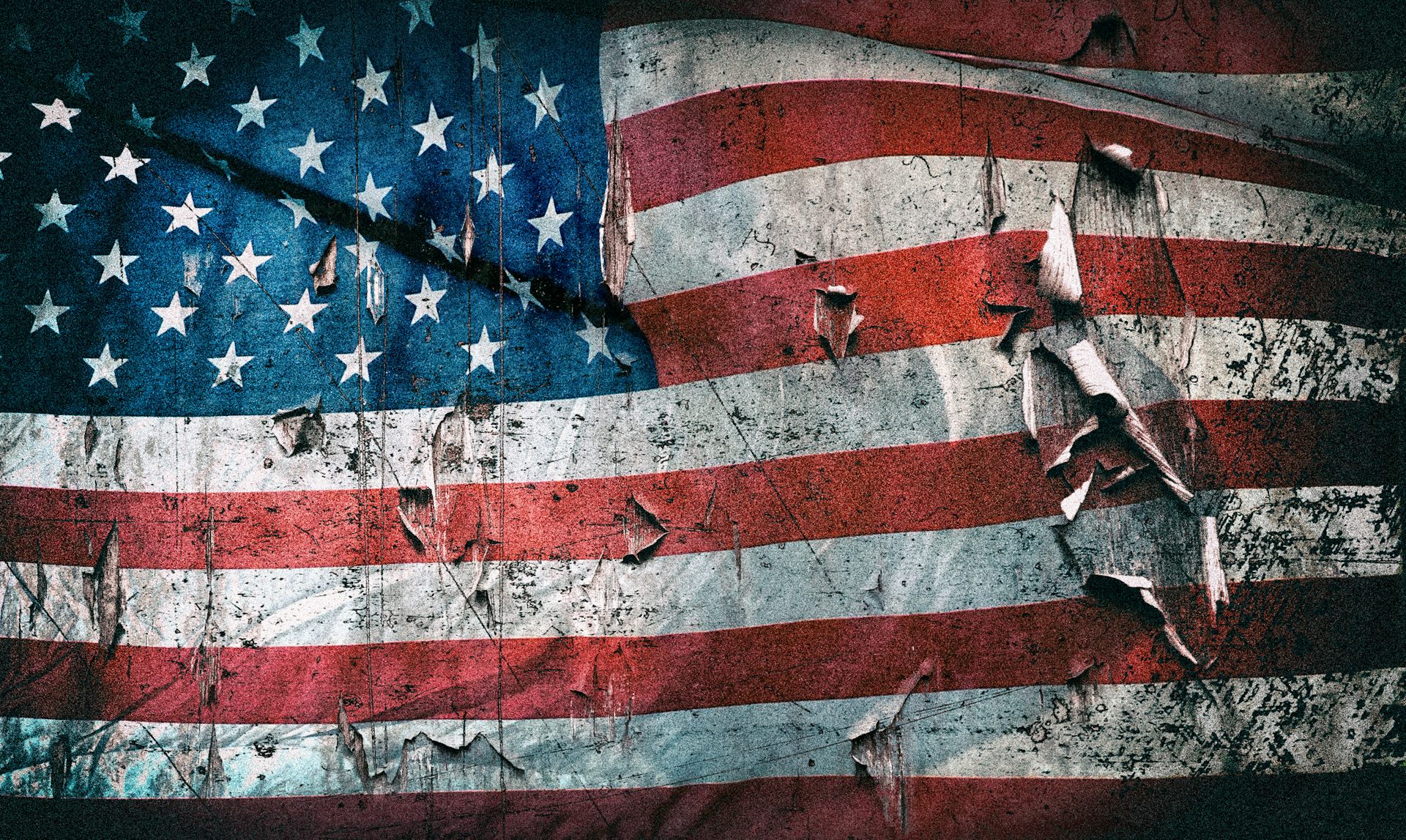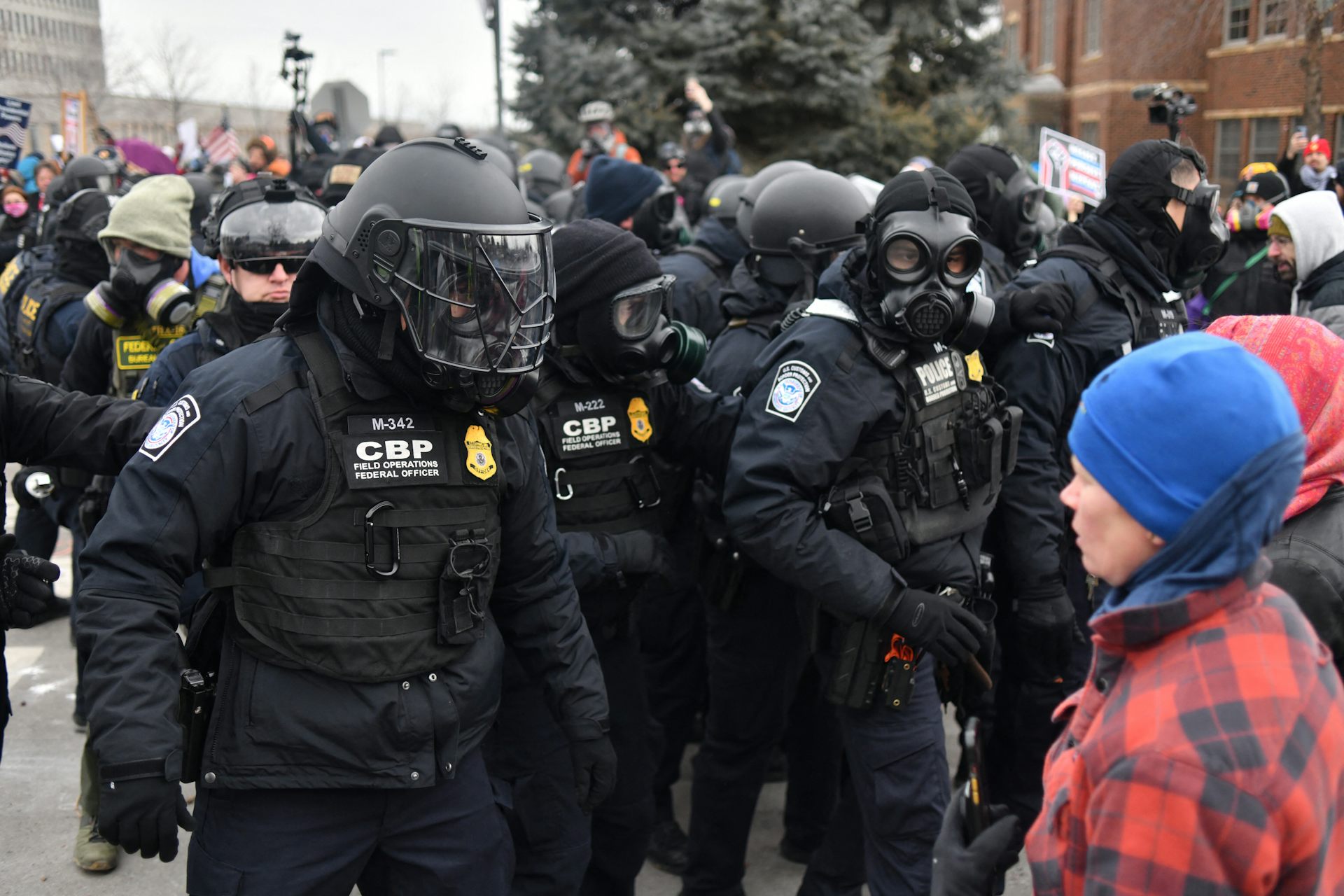Why Tennessee's law limiting drag performances likely violates the First Amendment
Free speech protections in federal law likely mean a new Tennessee law restricting or banning some drag shows will be found unconstitutional, says a First Amendment scholar.

On March 2, 2023, Tennessee became the first state to enact a law restricting drag performances.
This law is part of a larger push by Republican lawmakers in numerous states to restrict or eliminate events like drag shows and drag story hours.
These legislative efforts have been accompanied by inflammatory rhetoric – not grounded in fact – about the need to protect children from “grooming” and sexually explicit performances.
Tennessee Republican Sen. Lindsey Tichenor, the legislation’s lead sponsor, claimed, “This bill is pro-children. For some reason, people want this type of content in front of children. And I would dare ask, why? Why do we need to sexualize our children?”
Such rhetoric reveals that those seeking to restrict drag performances sometimes don’t understand what drag is or seeks to do.
Drag is an art form in which performers play with gender norms. Drag shows often include dancing, singing, lip-synching or comedy. Some common forms of drag include cisgender male and transgender female performers dressed in stereotypically feminine ways and cigender female and transgender male performers dressed in stereotypically masculine ways.
Drag artists also participate in many other kinds of events. For example, drag queens host family-friendly story hours at local libraries where they read age-appropriate books to children.
Current Supreme Court decisions suggest that laws like the one just passed in Tennessee probably violate the First Amendment’s protection of free speech. This is, in part, because many drag performances are protected by the First Amendment, which safeguards not only spoken, written, and signed speech but also many other actions meant to convey messages.
Republican legislators appear to have written the law to try to avoid running afoul of the First Amendment by treating drag shows as if they meet the legal definition of obscenity. Speech, including expressive conduct, that meets the Supreme Court’s criteria for obscenity is not covered by First Amendment protection.
I’m a scholar who studies U.S. free speech law. Looking at the text of Tennessee’s new law, I see several ways in which this anti-drag law appears susceptible to significant First Amendment challenges.

Tennessee’s new law
The law amends what Tennessee considers an “adult cabaret performance” and bans “male or female impersonators who provide entertainment that appeals to a prurient interest” from performing on public property or in any other location where the performance “could be viewed by a person who is not an adult.”
This law thus regulates not only public spaces but also privately owned locations like bars and performance venues. A first violation is a misdemeanor. Subsequent violations are felonies.
Because the law is limited to drag performances that appeal “to a prurient interest,” in theory, many drag shows should be unaffected. A prurient interest consists of a morbid or excessive interest in sex, nudity or excretion.
But various Republican legislators in Tennessee have recently fought to prevent even vetted family-friendly drag shows with no lewd or sexual content from being held in public.
Given this, drag performers and other artists have reasonable grounds for suspecting that Tennessee officials may seek to interpret the new law broadly to include many kinds of drag performances and other shows that play with gender norms.
Given the popularity of drag shows, this new law could stifle a lot of expression and damage the ability of full-time drag performers to make their living.
But even if Tennessee officials interpret the new law narrowly, the law still appears likely to run afoul of the First Amendment.
Drag is protected ‘expressive conduct’
The First Amendment protects more than just written, oral or signed speech. It also protects many other actions designed to convey ideas. The legal terms for these actions are “expressive conduct” or “symbolic speech.”
Some activities courts have recognized as expressive conduct include making and displaying art and music, picketing, marching in parades, desecrating a U.S. flag, burning a draft card, dancing and other forms of live entertainment.
Drag shows typically consist of various forms of protected speech – such as telling jokes and introducing performers – and protected expressive conduct such as lip-synching and dancing. Thus, drag shows are usually covered by the First Amendment.
But Tennessee’s new law insinuates that drag performances might be part of a category of speech exempt from the First Amendment protection: legally defined obscenity. If this were so, then Tennessee’s law likely would pass constitutional muster.
However, Tennessee lawmakers have not provided viable examples of obscene drag performances in Tennessee. And current Supreme Court precedent makes it highly unlikely that all the expressive conduct Tennessee seeks to regulate falls into the narrow legal category of obscenity.
Defining obscenity
In considering whether something is legally obscene, the Supreme Court requires courts to consider whether (1) the average person, applying relevant community standards, would find that the work, taken as a whole, appeals to prurient interest; (2) the work depicts or describes, in a patently offensive way, sexual conduct defined by the applicable state law, and (3) the work, taken as a whole, lacks serious literary, artistic, political or scientific value.
Tennessee’s inclusion of the phrase “appeals to a prurient interest” suggests they are trying to classify the behavior they are seeking to regulate as obscene.
But the Supreme Court’s criteria for obscenity outline something stronger and more specific than the Tennessee law does.
First, it requires that the work “taken as a whole” appeals to the prurient interest of “the average person.” The vast majority of drag shows don’t satisfy this criterion. It is not enough for some people to find some portions of drag shows appealing to a prurient interest.
In addition, Tennessee’s law completely ignores the other two criteria for obscenity. Many drag shows don’t involve any sexual conduct. But typically when drag shows do invoke sexual conduct it’s campy or humorous, rather than what the law defines as “patently offensive.”
Perhaps most significantly, as is widely recognized, drag is artistic and political. Drag performers use drag to push artistic boundaries and to discuss pressing political issues.
Courts and scholars alike have widely held that free speech is a crucial aspect of democratic self-governance. For that reason, free speech’s role in preserving democracy is one of the most cited rationales for protecting it.
As a First Amendment scholar, I believe that rationale includes protecting drag shows.
Discriminatory and overly broad
Freedom of speech, like all rights, is not absolute.
The Supreme Court has allowed states to put some limits on protected speech. For example, states may impose restrictions on the time, place and manner in which speech occurs, so long as such limitations are content-neutral.
Examples include requiring permits to hold parades on city streets and not allowing loud music between midnight and 6 a.m. on public sidewalks.
Tennessee’s law has at least two problems here.
First, it legislates more than mere time, place and manner restrictions. Instead, the law bars, at all times, “male or female impersonation” that it deems appealing to a prurient interest from any public property and from many private venues, too. This is a wholesale ban on such speech in all public forums and in many private spaces. Courts will likely find this too broad.
Second, by singling out “male and female impersonators,” Tennessee’s law fails to be content-neutral. It instead discriminates on the basis of the expressive conduct’s content.
Tennessee’s new law bolsters the case that anti-drag laws are antidemocratic, discriminatory and unconstitutional.
Mark Satta does not work for, consult, own shares in or receive funding from any company or organization that would benefit from this article, and has disclosed no relevant affiliations beyond their academic appointment.
Read These Next
12 ways the Trump administration dismantled civil rights law and the foundations of inclusive democr
At its one-year mark, the Trump administration is dismantling the systems that once helped the US move…
Googoosh, the ‘Voice of Iran,’ has gone quiet – and that’s her point
The 75-year-old pop star is part of a generation of Iranians in the diaspora who are watching, with…
The Insurrection Act is one of at least 26 legal loopholes in the law banning the use of the US mili
Can the president use the Insurrection Act and send the military into U.S. cities? A web of legal provisions…





